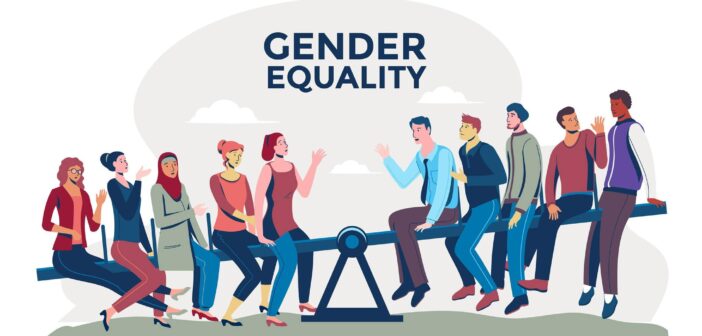To say that women workforce in the Indian real estate has broken the proverbial glass ceiling would be stating the obvious. Far from being perceived as a decorative value at the reception only, the women have now stormed into critical areas, from sales to consumer grievances and corporate communication to legal. Many of them have even been into the decision making and the work culture in many of the Grade A real estate companies appear to be gender neutral.
This brings to the table the moot point: By when will the large universe of Indian real estate be gender neutral in the true sense of the term. More importantly, by when will the boardroom of real estate companies be witness to the professional women beyond the developers’ wives and daughters?
In an online survey by Track2Realty, 80% women professionals admitted that the work culture of their realty employers have improved in the last 10 years. 68% of the women workforce are no longer scared of joining a real estate company for long-term career growth. Even far greater in number, 88% admitted that the social stigma of working for a builder is a thing of the past.
By when will it be completely gender neutral? Opinion is divided but by and large women professionals maintain that the road to reform is far more conducive now, compared to the last five years. Many of them even believe, as many as 42%, that it is no longer understood reality that women will be paid less, compared to their male colleagues.
Vineetha P, a real estate professional with a Chennai-based developer is a case in point. She fought with the management to get a salary hike that she felt entitled to. The management that initially hesitant with this later conceded that her increment has to be proportional to her performance.
“In the entire sales team, my performance has been the best. When it came to appraisal, I could not take it sportingly that some of my male colleagues with lesser performance on the sales chart got away with as much increment as me. I made the management realize that it could lead to a demoralizing effect on the performance driven workforce. Thankfully, I got a revised pay scale with an appreciation letter,” says Vineetha.
Vineetha is not alone to be a torch bearer of gender equality in the matured property market of Chennai. As a matter of fact, women workforce (many of them do not wish to be quoted as per the company policy) from Kolkata to Noida are demanding what they feel is their due. A lot many of them are nowadays getting it too.
Speaking on the trend, Suneeta Saha, an HR consultant in Delhi says that the wave of change is much faster than what she could anticipate some 10 years back. According to her, since the initial women workforce in the real estate could break the taboo and social stigma of working with a builder, hence the new entrants are taking a realty job like any other corporate job.
“I can’t forecast how long will it take to make the real estate completely gender sensitive and gender neutral. But what I can definitely vouchsafe is the fact that it won’t take too long now. Maybe it will take five years or so, but definitely not more than 10 years to see a new gender balanced women workforce in Indian real estate. As a matter of fact, our market assessment says the women professionals face lesser discrimination at office than in their dealing with the home buyers,” says Sunita.
Amanda Joy Puravankara, Executive Director, Provident Housing points out that real estate has traditionally been a male dominated industry and because it has been a nuanced industry, we tend to find talent within the industry. So, it becomes a vicious cycle. More seasoned real estate professionals are men, and hence you get more men in the workforce. However, I do believe that a fresh pair of eyes and a different kind of thinking will do a world of good. There is a lot of scope to involve women in the new aspects of real estate and home buying.
“Of course, if you do have more women in the senior management and the board, the culture of the company and the working style of the company will definitely change. Your female employees also get comfortable and have a sense of security when they notice that and then there is a domino effect where more and more women will gravitate towards the real estate industry. That is how you create a pool of women workforce and then elevate them into top management,” says Amanda.
Cheryl D’souza Waldiya, Associate Vice President, K Raheja Corp makes it an interesting point when she says that gender balance is not just about the head count but to encourage them to get into the leadership position. According to her, the whole narrative of inclusiveness and diversity is getting picked up. Nowadays top realty companies are hiring more women, encouraging more women, and framing policies which are more women friendly, whether it is about getting maternity leave or sabbatical etc.
“With the ESG coming into play, the social aspect is what are you doing for people in general and women in particular within the organization. So, there is a public disclosure on what are you doing for your employees that encourages companies to focus on this aspect. And to be at par, I feel it would take some five years to 10 years; it is moving very quickly. Today, the ratio might be 80:20 and to reach to 50:50 it will take at least five more years now as the organizations are making conscious efforts,” says Cheryl.
There seems to be a general consensus that the wave of change for the female employees in real estate has swept in the sector in the last over a decade. However, a lot of catching up is yet to be done and hence the women employees feel it would take another decade or so to make the sector gender balance both in quantitative as well as the qualitative terms.
Most of the Grade A and listed developers do understand the benefits of having the women workforce around. But the domino effect has not been noticeable with the large universe of the lesser known builders. And it is here that the sector is still lagging in having female employees across the board. Will it indeed change in the next over a decade? Well, the voice vote is yes and there are reasons to believe this.
Ravi Sinha
#RaviTrack2Media
Track2Realty is an independent media group managed by a consortium of journalists. Starting as the first e-newspaper in the Indian real estate sector in 2011, the group has today evolved as a think-tank on the sector with specialized research reports and rating & ranking. We are editorially independent and free from commercial bias and/or influenced by investors or shareholders. Our editorial team has no clash of interest in practicing high quality journalism that is free, frank & fearless.
Subscribe our YouTube Channel @ https://bit.ly/2tDugGl





